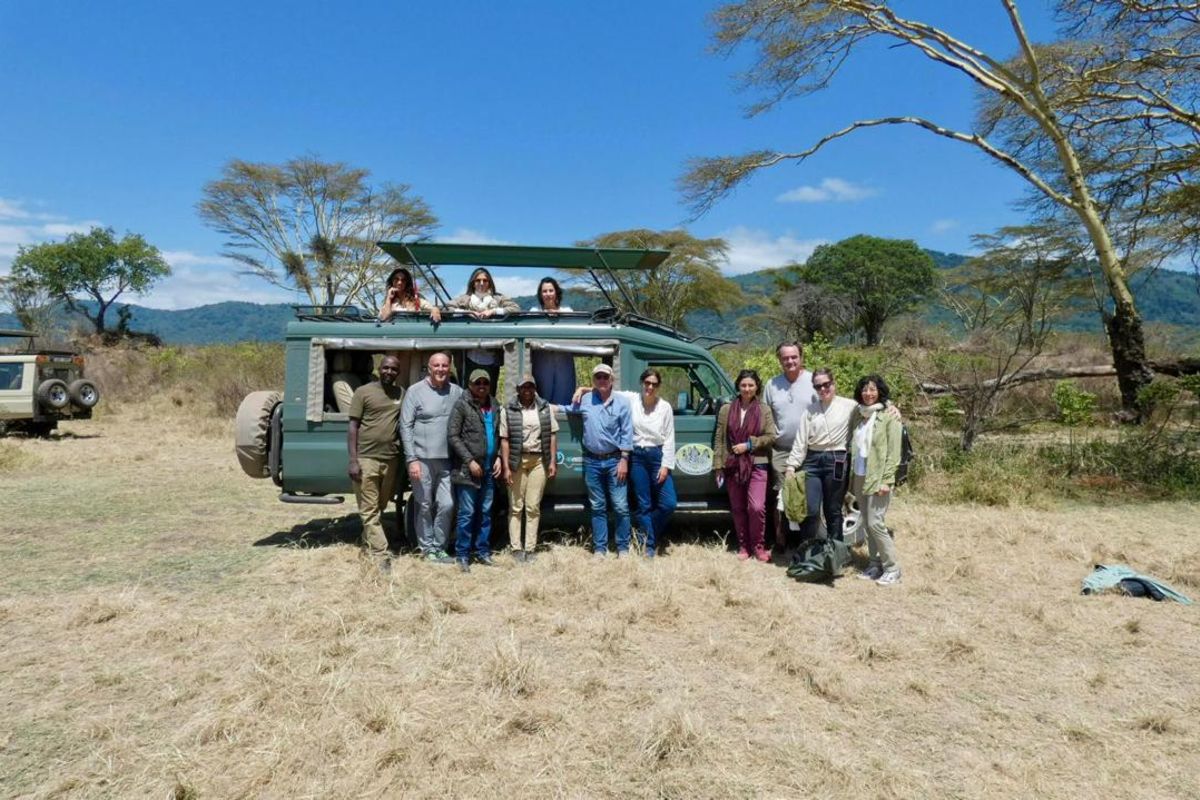Arusha: Leading the Charge in Eco-Friendly Safari Tourism
Nestled in the heart of Tanzania’s northern tourism circuit, Arusha has become a beacon of sustainable travel, thanks to the pioneering efforts of the Mount Kilimanjaro Safari Club (MKSC). Since its inception, MKSC has garnered international acclaim for its commitment to green investments, setting a new standard for eco-friendly travel in the region.
A Revolutionary Step: Electric Safari Vehicles
In 2018, MKSC made headlines by introducing East Africa’s first 100 percent electric safari vehicle. This groundbreaking initiative not only marked a significant milestone in sustainable tourism but also positioned MKSC as a trailblazer in the industry. The electric safari vehicles offer a unique advantage: their silent operation allows for a more intimate and less intrusive wildlife experience. Prominent travel writer Ms. Carolina Saporiti, during her recent visit to Arusha, praised these vehicles, noting, “The special touch was doing a safari with electric cars, because the way you can approach the animals is unique.”
The quiet nature of electric vehicles minimizes disturbances to wildlife, a crucial factor in preserving the natural behaviors of animals in their habitats. This innovative approach has garnered positive feedback from various journalists and travelers alike, highlighting MKSC’s role in redefining wildlife interactions.
Enhancing Green Credentials with Solar-Powered Lodges
MKSC’s commitment to sustainability extends beyond electric vehicles. The company operates ten solar-powered lodges and camps across the region, further enhancing its green credentials. These lodges not only provide comfortable accommodations for tourists but also demonstrate the feasibility of renewable energy in the hospitality sector. By harnessing solar power, MKSC significantly reduces its carbon footprint, aligning with global trends towards eco-conscious travel.
Voices from the Field: Journalists Weigh In
The positive impact of MKSC’s electric safari vehicles has not gone unnoticed by the media. French journalist Ms. Marjorie Cessac, who revisited the Serengeti after 15 years, remarked on the increase in tourists and safari vehicles. She emphasized the need for Tanzania to develop electric cars to combat air and noise pollution, stating, “To face the upsurge of tourists and to preserve nature, Tanzania really needs to develop electric cars.”
Spanish travel journalist Ms. Ana Montañez echoed these sentiments, envisioning a future where electric safari vehicles create new job opportunities while enhancing environmental protection. She praised MKSC for its innovative approach, emphasizing respect for wildlife and minimal disruption during safari experiences.
Economic and Environmental Benefits
MKSC’s managing director, Mr. Dennis Lebouteux, shared insights into the operational success of their electric vehicles. Despite challenges posed by the Covid-19 pandemic, MKSC’s fleet of nine electric safari cars covered approximately 12,000 kilometers per month with minimal maintenance costs. “Running an e-car can save an average of $8,000 to $10,000 on fuel alone per year,” Lebouteux noted, highlighting the economic benefits of transitioning to electric vehicles.
Moreover, these vehicles are powered entirely by solar energy, offering both environmental and economic advantages. The broader implications of MKSC’s green initiatives reflect a growing global trend towards sustainable tourism, appealing to eco-conscious travelers seeking unique wildlife experiences.
A Global Perspective on Sustainable Tourism
The increasing demand for green tourism destinations is underscored by a 2019 study by the United Nations Environment Programme (UNEP), which revealed that Costa Rica’s eco-friendly practices attracted 3.14 million tourists and generated $3.4 billion—significantly more than Tanzania’s 1.5 million tourists. This data highlights the potential for Tanzania to enhance its appeal as a sustainable travel destination.
In line with this trend, the E-Motion project—a collaboration between Hanspaul Group and Gadgetronix—is advancing the use of electric vehicles in Tanzania. This initiative aims to retrofit traditional petrol and diesel vehicles into electric ones, positioning Tanzania as the second nation in Sub-Saharan Africa, following South Africa, to adopt electric safari vehicles.
Conclusion: A Bright Future for Eco-Conscious Travel
As eco-conscious travel gains popularity, Tanzania’s innovative efforts in electric safari vehicles are setting a new benchmark for sustainable tourism. MKSC’s commitment to green investments not only enhances the travel experience but also contributes to the preservation of Tanzania’s rich wildlife and natural landscapes. With the support of initiatives like E-Motion and the growing recognition of the importance of sustainability in tourism, Arusha is poised to lead the charge in eco-friendly safari tourism, appealing to travelers who prioritize environmental responsibility and seek unique, respectful wildlife experiences.
In a world increasingly aware of the impact of travel on the environment, MKSC stands as a testament to the potential for tourism to be both enjoyable and sustainable, paving the way for a brighter, greener future in the heart of Africa.

